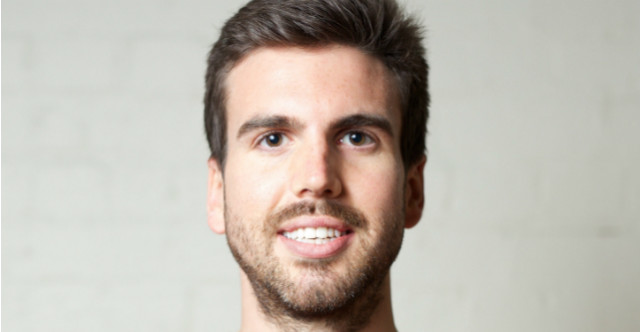
Splend founder Chris King
On-demand car hire startup Splend has planted more than 10,500 trees to offset the carbon emissions of its driver community, and founder Chris King says startups “can’t afford not to be passionate about sustainability”.
The trees were planted in partnership with not-for-profit climate action organisation Greenfleet to offset Splend’s fleet of more than 1000 vehicles, which are rented out to drivers for ride-sharing services like Uber through an online platform at prices between $169 – $269 per week.
Splend’s team worked with Greenfleet for 18 months to deliver this initiative, and King says the thousands of trees planted are “reflective of the significant growth we have experienced over the journey to date”.
“To put that into perspective, the number of trees planted by Splend to date would cover the surface of the Melbourne Cricket Ground. That image simply blew me away,” King tells StartupSmart.
Since launching in mid-2015 Splend has amassed over 1,300 vehicles in its fleet, and is currently working towards expanding this to 4000 cars in the future, which is why offsetting these carbon emissions was so important for King.
King, who featured in SmartCompany‘s 2017 Hot 30 Under 30 list, was inspired to leverage the shift in car ownership that ride-sharing has caused, which he says has led to younger generations buying fewer cars, and take this “positive environmental impact to the next level” by offsetting the carbon emissions of his fleet.
It’s an initiative King says he will “continue to support” in the future.
“I don’t think as a business today, or as an individual for that matter, you can afford not to be passionate about sustainability,” King says.
“The partnership was driven by both our staff and [Splend] member base … As we grew rapidly, it was important for our staff base to know that for every car we put on the road, Splend will have the carbon emissions offset by Greenfleet.”
The Splend team has grown its team by over 70% in the last year-and-a-half, expanding from 24 employees in April 2016 to now more than 40, and King says the team is currently “working towards an international expansion” with more details to be released later this year.
Last year Splend partnered with Uber and raised $3 million from Investec to expand its fleet to 4000 cars. When StartupSmart spoke to King in April last year, Splend had generated more than $5 million in revenue since launching in eight months prior in July 2015. At that time King believed that revenue number would double in time for the startup’s first birthday in July 2016, however he has declined to reveal Splend’s current yearly revenue.
“It has to be about more than just making money”
King believes all startups should have an element of social or environmental responsibility built in to their company values, as a way of fostering a sense of community and building a strong company culture.
“It is important for any business to contribute to the communities in which they operate. Size or stage in business journey shouldn’t matter; it’s always important to have social responsibility built into the business ethos,” he says.
“As an added bonus, by giving back you create a sense of community that will help build a strong culture. Gone are the days of greedy conglomerates — people are more aware these days and want their work to mean something.”
Giving back to the community can increase your brand awareness and attract top talent to your startup, King says.
“If you want to attract good talent and build a business you can be proud of and feel good about, it has to be about more than just making money,” he says.
How startups can give back to the community
For startups looking to take greater social responsibility, King says they should be “researching the industry [their startup operates in] and meeting with relevant business leaders” to determine potential social activations and collaborations.
“In most instances, the use of technology will allow startups to reduce their environmental footprint,” King says, adding that Splend is moving towards a paperless office and using “telematics devices to collect driving data”, which will be used to instruct Splend users on how to drive more efficiently and reduce their fuel consumption in the future.
Splend has also considered the interactions their driver users often have with their passengers, and King advises startups to similarly look at how their customer’s interactions “could be used to promote a social initiative”.
Leveraging these interactions led to Splend forge a partnership with social enterprise Thankyou Group, where Splend provided its drivers with Thankyou water bottles to hand out to passengers.
“While it might end up costing us slightly more than other options, Splend’s contribution will directly help over 3500 people access safe drinking water.” King says.
“I don’t think you can put a price that kind of impact.”
Follow StartupSmart on Facebook, Twitter, LinkedIn and iTunes.


COMMENTS
SmartCompany is committed to hosting lively discussions. Help us keep the conversation useful, interesting and welcoming. We aim to publish comments quickly in the interest of promoting robust conversation, but we’re a small team and we deploy filters to protect against legal risk. Occasionally your comment may be held up while it is being reviewed, but we’re working as fast as we can to keep the conversation rolling.
The SmartCompany comment section is members-only content. Please subscribe to leave a comment.
The SmartCompany comment section is members-only content. Please login to leave a comment.